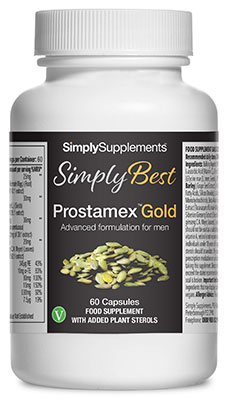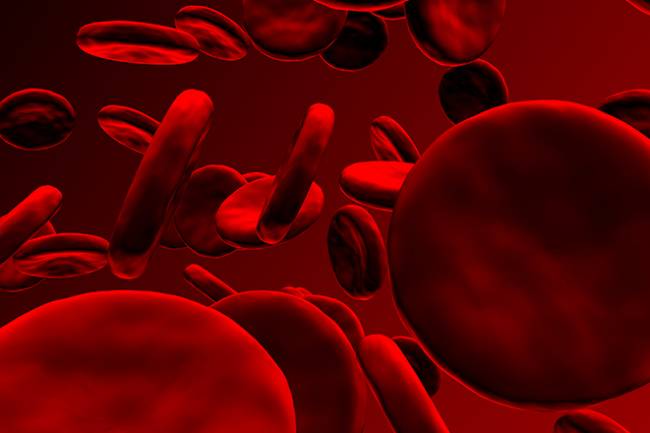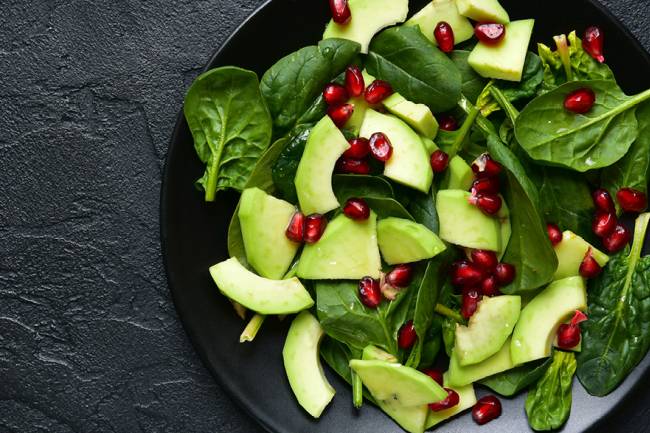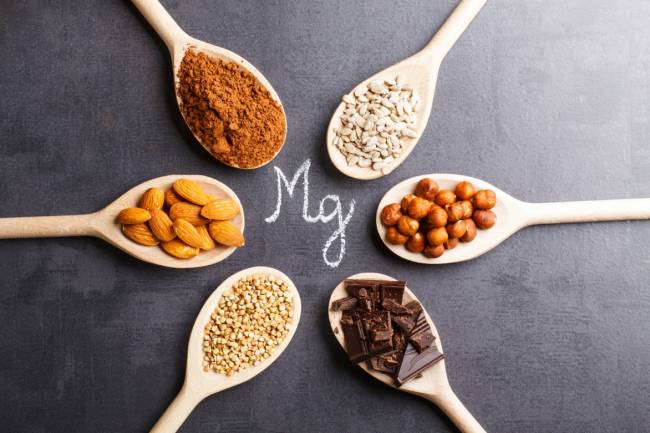10 Best Foods for Prostate Health

Half of men over 60 experience the painful and uncomfortable symptoms of benign prostatic hyperplasia (BPH), a harmless condition that causes a frequent need to urinate, a 'stop-start' urine flow, and pain during urination.
Other conditions that affect the prostate are prostatitis, a bacterial infection that temporarily causes pain and discomfort, and prostate cancer, which affects around 1 in 8 men at some point in their lives.
All three conditions have been linked, although not exclusively, to poor lifestyle and diet.
There is growing evidence for the 'anti-inflammatory diet' to protect against and relieve prostate problems. Similar to the Mediterranean diet, it involves eating plenty of fresh fruits, vegetables, spices, and healthy fats such as those found in fresh fish, nuts and avocados.
Inflammation in the body is linked to several diseases including heart disease, certain types of arthritis, dementia, and 20% of cancers. While research for the 'anti-inflammatory diet' suggests it may be beneficial, it is still in its early stages and the evidence is not conclusive. However, there is no doubt that diet plays an important role in the maintenance of a healthy prostate.
Many men find relief from an enlarged or inflamed prostate through a combination of lifestyle and dietary changes, and supplements for prostate health. Try to incorporate these ten foods into your weekly diet to improve the health of your prostate.
Peppers
Different types of peppers have slightly different nutritional profiles. Bell peppers have the highest vitamin C content of any food (yes, even oranges!) and may help to reduce the swelling and inflammation associated with an enlarged prostate. Vitamin C also acts as a diuretic, which some men say improves urination.
High-dose intravenous delivery of vitamin C can be as effective as antibiotics at curing infections and has even been shown to reduce the size of prostate cancer tumours. Jalapeno peppers contain higher quantities of capsaicin, the ingredient that gives peppers their heat.
Laboratory studies suggest that capsaicin makes “cancer cells commit suicide” – one study found that capsaicin triggered the death of 80% of cancer cells.
However, you would need to eat as many as eight peppers per week to see these benefits, which isn't practical. While the medical community tries to harness the power of capsaicin in future medicines, for now, just add a range of peppers to your weekly diet to maintain good prostate health.
Tomatoes
The vivid red colour of tomatoes comes from lycopene, a powerful antioxidant carotenoid that helps to lower blood levels of antigen, a protein connected to prostate inflammation and BPH. A study at Harvard University involving 47,894 men found that eating two servings of tomato sauce each week reduced the risk of prostate cancer by 23% compared to men who rarely ate tomato based products.
In a separate study, 15mg of lycopene daily was shown to slow the progression of BPH. The body has a hard time digesting lycopene from fresh tomatoes, so cooked or processed tomatoes such as puree and pasta sauces are best! This is because the cooking process breaks down cell walls and makes lycopene more bioavailable. But beware of sauces that contain added sugar.
Garlic
Garlic, onions, and leeks all contain protective substances called alliums. Garlic, in particular, has long been used medicinally to treat a wide range of conditions from high blood pressure to a weak immune system. More recently, studies have shown that diets high in garlic can reduce the risk of BPH and relieve urinary tract infections commonly associated with an enlarged prostate.
One study comparing the diets of 2820 men found that those who regularly ate garlic had a 28% lower risk of BPH compared to men who never ate garlic. A separate population-based study in China found that men who ate at least 10 grams of allium foods each day halved their risk of prostate cancer, compared to men who ate little garlic. However, other studies have found little protective effect against cancer.
Cruciferous Vegetables
There appears to be a link between higher intake of cruciferous vegetables and lower risk of prostate cancer. Cruciferous vegetables such as broccoli, cauliflower, cabbage and kale all contain a compound called sulforaphane, which appears to target and kill cancer cells while leaving healthy cells undamaged. It has been referred to as the best phytochemical inducer of phase-2 enzymes, which help to fight carcinogens and may reduce the risk of prostate cancer.
Broccoli is the best natural source of sulforaphane and a tomato-broccoli combo has been shown to be more effective at shrinking tumours when eaten together rather than alone. These work on work on different anti-cancer pathways and so provide an additive effect when consumed together.
Pumpkin Seeds
Pumpkin seeds are one of the best dietary sources of zinc, which can be helpful as 75% of men who suffer from an enlarged prostate have low zinc levels. Men lose zinc in every seminal emission and so need greater quantities of zinc than women. Deficiency often results in an inflamed and enlarged prostate. Studies have found that men with prostatitis often have zinc levels 90% lower than those found in healthy prostates, and increasing zinc intake to 100mg daily effectively shrank a swollen prostate and improved symptoms in 70% of cases.
Nuts
A small handful of nuts is one of the best snacks available. Brazil nuts, in particular, are rich in vitamin E and selenium and have been labelled the anti-cancer superfood. Vitamin E maintains healthy cell membranes and selenium boosts testosterone levels, improves sperm quality and motility, and strengthens the immune system against infections. A 5-year study found that a daily intake of selenium reduced prostate cancer risk by 63%, colon cancer by 58%, and lung cancer by 46%. Just two to four raw nuts a day can provide sufficient vitamins and minerals to maintain prostate health. Don't cook them, as this damages the delicate vitamin and mineral content.
Soya-Based Foods
Foods rich in soya, such as tofu, tempeh, soya milk and edamame beans are dietary staples in many Asian countries, which intriguingly also have lower rates of prostate cancer than western countries where soya intake is low. Soya is a unique source of the isoflavones genistein and daidzein, which act like the hormone oestrogen.
Laboratory studies suggest that genistein, in particular, is able to induce the death of cancer cells and enhance the effect of radiation on cancer cells.
Population studies have also demonstrated a link between high soya intake and low prostate cancer incidence. Adding 2 ounces of soya to the diet for one month can reduce prostate-specific antigen (PSA) levels, which are commonly used to screen for prostate cancer, by 13%. However, there are pros and cons of consuming high amounts of soya. In addition to the benefits mentioned above, soya can cause fluctuations in hormone levels, so it is best to consume it moderately.
Oily Fish
Oily fresh water fish such as salmon, sardines, mackerel, trout and herring are all rich in omega 3 fatty acids that have been shown to reduce inflammation. A recent study found that diets rich in omega 3 helped to prevent the growth and spread of prostate cancer cells, and suggested that deficiency may be a contributing factor to prostate problems.
The typical western diet has an imbalance of omega 3 and 6 fatty acids. While pro-inflammatory omega 6's (such as those found in vegetable oil) are essential to protect the body from infection and injury, they can also cause damage in high quantities. We need more anti-inflammatory omega 3's to balance out their effects. Try to eat two portions of fish each week, one of which should be oily, in order to consume sufficient levels of omega 3.
Saw palmetto
Saw palmetto is a palm-like shrub that originated in North America and has a long history of use in the treatment of BPH. It produces a fruit rich in fatty acids and phytosterols, which is believed to reduce the body's conversion of testosterone to DHT and ease symptoms of an enlarged prostate, such as the urge to urinate frequently. Simply steep a teaspoon of the dark berries in hot water for five minutes and drink twice daily. Alternatively, some men find saw palmetto supplements provide an easier and cost-effective means of consuming a consistent dose.
Green Tea
Green tea is rich in a family of antioxidant compounds called catechins. One study found that men with BPH who supplemented with 500mg of green tea daily for six weeks experienced improved urine flow, decreased inflammation, and improvements in quality of life. A separate study found that drinking more than five cups of green tea each day may reduce the risk of prostate cancer by decreasing levels of insulin-like growth factor-1 (IGF-1). Brew green tea leaves for at least five minutes to release their healthful compounds.
Foods to Avoid
Certain foods may also have a detrimental effect on the functioning of the prostate. Whilst these don't need to be avoided completely, they are best eaten in moderation:
- Dairy: Dairy is by far the best dietary source of calcium, which is needed for the maintenance of strong bones. Consuming normal amounts of dairy produce probably won't increase your risk of prostate problems, but high quantities over 2000iu per day might. Dairy produce raises levels of a protein called insulin-like growth factor-I (IGF-1), high levels of which are linked to increased cancer risk. Two studies from Harvard University have found that men who drank milk daily had a 30% to 60% greater risk of cancer, compared to men who rarely drank milk at all.
- Red and processed meat: You should limit your consumption of animal protein from beef, pork, lamb, ham, bacon and sausages as high quantities may increase the risk of aggressive prostate cancer. One study also showed that daily consumption of red meat increased the risk of BPH by 38%. Studies have also shown that if your diet is rich in vegetables, then eating meat in moderation (once to twice a week) shouldn't increase your risk of prostate problems.
- Saturated fats: Saturated fat is needed in moderation, but excessive consumption may increase the risk of prostate problems. One study found that men who consumed over 40% of their calories from fat had a 30% increased risk of BPH, compared to men who ate low-fat diets.
If you have noticed changes or you are concerned about the health of your prostate, consult with your doctor. While often harmless, your doctor will be able to rule out any serious complications and set your mind at ease.

 Nicole
Nicole 

























